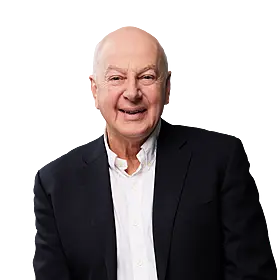Indian scientists have developed a new DNA vaccine against COVID-19 that doesn't need to be injected, Professor Luke O'Neill says.
Last month, authorities in India approved the use of ZyCoV-D - a 'needle-free' vaccine developed by the pharmaceutical firm Zydus Cadila.
The vaccine contains strands of DNA known as plasmids, which helps the body create the spike protein needed to combat coronavirus.
It's administered through the skin using a special device, as opposed to the traditional vaccination method of injection into the upper arm muscle.
An article in Nature explains that the device is pressed against the skin and "creates a fine, high-pressure stream of fluid that punctures the surface and is less painful than an injection".
A large-scale trial showed the vaccine had an efficacy of over 66% for symptomatic cases of COVID-19.
The three-dose vaccine is the first DNA vaccine to be approved for use anywhere in the world - not just for COVID-19, but for any virus.
It's not alone, however, as several other DNA vaccines against COVID are also being trialled.
Like other vaccine breakthroughs during the pandemic, it's also hoped the technology in question could be used against other viruses in the future.
Professor O'Neill - professor of biochemistry at Trinity College - told The Pat Kenny Show that DNA vaccines were being developed before COVID came along.
He said: “We’ve always thought DNA vaccines might be useful.
“You’re using the DNA molecule. You inject DNA into someone - that makes the RNA, and the RNA then makes the spike and you make an immune response. Of course, the RNA cuts out the DNA - that’s what the Pfizer and Moderna vaccines are.
“But DNA was always a prospect - it’s much more stable, it’s easier to store, and you don’t need to use a needle. You can get this DNA into your skin using a high-pressure device."
He said ZyCoV-D is made by a "very reputable" company, and the lack of injection could be a significant development for people who aren't comfortable with needles.
He suggested: “If that gains traction, people would prefer not to be injected - some would anyway.
"They’ve now, you might say, cracked the DNA technology to get another type of vaccine.
"It gives us yet another type of vaccine to use against COVID.”








